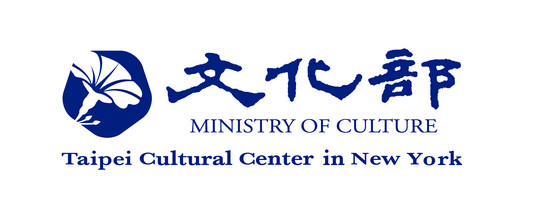Singing is what makes work possible
March 15–April 6, 2019
2131 N American St.
Philadelphia, Pennsylvania 19122
USA
In “Singing is what makes work possible”, Bill Dietz & Hong-Kai Wang reimagine the time & space of the exhibition as a rehearsal studio for working on & through the relations of labor & aesthetics. Dietz & Wang invite visitors to join them as members of a choral study group for weekly workshops (featuring special guests) & public presentations.
Central to Dietz & Wang’s investigation is what they have called, “literacy of the throat”—a privileging of embodied & non-verbal forms of knowledge that exceed hegemonic notions of both aesthetics & labor. As such, the weekly thematic foci of the exhibition insist on attending to non-artistic forms of aesthetic practice as well as all manner of non-waged forms of labor: gender & practices of midwifery, unequal ethnic trajectories of migration in the local context of Philadelphia, the visionary practices of historical religious separatists, and the question of “art working” in relation to other forms of labor in America.
Each week, members of the choral study group assemble to learn a thematically related archival piece of vocal music by ear. The learning & rehearsing process is framed discursively in dialogue with special guests. On Fridays (and one Saturday), the study group presents its “results” in a series of public receptions. During the week, Dietz & Wang offer participants a score for the introjection of rehearsal into participants’ daily life.
Friday, March 15, 7pm
Opening Meeting
Saturday, March 16, 1–5pm
Study Session: “Music & Spiritual Labor” with special guest: TBA
Friday, March 22, 7pm
Study Presentation 1
Saturday, March 23, 1pm to 5pm
Study Session: “Aesthetics & Reproductive Labor” with special guest: Jairo Moreno
Friday, March 29, 7pm
Study Presentation 2
Saturday, March 30, 1–5pm
Study Session: “Migration & Sound” with special guest: TBA
Saturday, April 6, 6pm
Final presentation & panel discussion on “The Aesthetics of Non-Productive Labor” with special guest: Tiona Nekkia McClodden
The title is taken from Dietz & Wang’s late friend, the composer & writer Chris Mann. The exhibition is dedicated to his memory.
Bill Dietz is a composer and writer, born in Arizona, and based since 2003 in Berlin. Since 2012, he has been co-chair of Music/Sound in Bard College’s Milton Avery Graduate School of the Arts. His work on the genealogy of the concert and the performance of listening has brought him to festivals such as MaerzMusik and the Donaueschinger Musiktage, museums such as the Hamburger Bahnhof, the Brooklyn Museum, the Stedelijk Museum, and das Museo de Arte Contemporáneo de Oaxaca, and into publications such as Performance Research Journal, boundary 2, and the 2014 Whitney Biennial catalogue. Large-scale works have been realized at locations such as Le Corbusier’s “Cité radieuse” in Marseille, the Bauhaus Archive in Berlin, and along the entire length of “Im Stavenhof” in Cologne. He has published two books—one on his “Tutorial Diversions” series, works to be performed at home; and the other, L’école de la claque, made up of “concert pieces.” From 2007 to 2015 he was the artistic director of the Berlin-based “Ensemble Zwischentöne,” organizing numerous festivals and concert series. From 2012 to 2013 he was a fellow at Akademie Schloss Solitude. From 2016 to 2017 he was Professor of Sound at the Academy of Media Arts in Cologne.
Hong-Kai Wang, Born in Huwei, Taiwan, Hong-Kai Wang is an interdisciplinary artist, researcher and educator based in Taipei. The process of Wang’s research-based practice is informed by the unceasing tension between languages, ideologies, identities and knowledge regimes. It is situated at the intersection of aesthetic, discursive and knowledge production, often concerned with politics of missing knowledges resulted by encounters between histories, lived experience and power. Through experimenting with modes of listening, organizing pedagogy as temporary gatherings, mobilizing collaborative sociality as performance, and encouraging alterior bodily interpretations, Wang’s practice often seeks to forge unlikely affiliation and time-space of the transformative beyond received chronologies and geographies. Her works span performance, installation, workshop, publication, sound work, conversation, etc. Wang has presented her practice internationally at Performing Arts Meeting in Yokohama 2019, Documenta 14, Taipei Biennial, Liquid Architecture, Museum of Modern Art New York, among others.
With generous support from the Taipei Cultural Council in New York.



